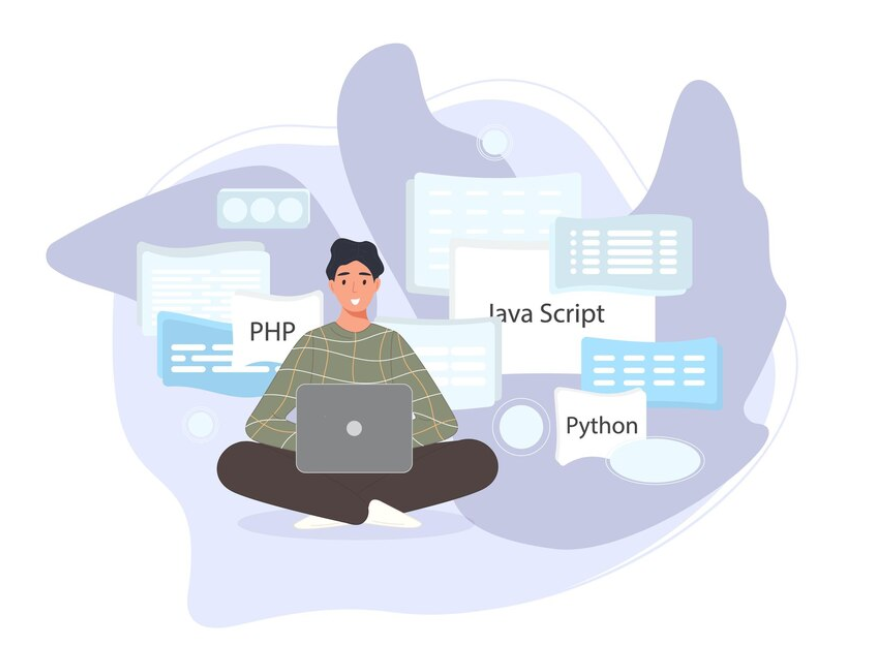How to Learn Python Language: A Comprehensive Guide to Promote Python training institute
Introduction:-How to learn python language
However, Python is one of the most popular and versatile programming languages today. For instance, Whether you’re a beginner looking to dive into the world of coding or an experienced developer aiming to add another language to your toolkit, learning Python is a valuable skill. similarly, Python training institute, a leading institute offering various courses, can help you master Python with its comprehensive curriculum and expert guidance. therefore, This guide will walk you through the steps to learn Python effectively and make the most of Python training institute resources.
Getting Started with Python and How to learn python language
Why Choose Python?
Similarly, Python is known for its simplicity and readability, making it an excellent choice for beginners. however, Its versatility allows you to work on various applications, from web development to data science and artificial intelligence.
Installing Python on Your System
Therefore, To start learning Python, you need to install it on your computer. Similarly, Visit the official Python website, download the latest version, and follow the installation instructions for your operating system. In other words, How to learn python language in addition Ensure you add Python to your system’s PATH during installation for easy access.
Understanding Python Basic how to learn python language
Variables and Data Types
Therefore, Variables in Python are used to store data. Understanding data types such as integers, floats, strings, and is crucial for writing effective code.
Python
Copy code
# Example of variables and data types
age = 25
name = “John”
Student = True
Basic Operations and Functions
all above, Python supports basic operations like addition, subtraction, multiplication, and division. therefore, Functions help you organize code into reusable blocks.
Python
Copy code
# Basic operations
sum = 5 + 3
product = 5 * 3
# Defining a function
def greet(name):
return , {name}!”
print(greet(“Alice”))
Learning Python Syntax and Structure
Writing Your First Python Program and learn how to learn python language
similarly, Start with a simple “Hello, World!” program to get familiar with Python’s syntax.
Python
Copy code
print(“Hello, World!”)
Understanding Indentation and Syntax Rules learn python language
In addition, Python uses indentation to define code blocks. Similarly, Consistent indentation is essential for the code to run correctly.
Python
Copy code
# Correct indentation
if age > 18:
print(“You are an adult.”)
else:
print(“You are a minor.”)
Exploring Python Libraries
Standard Libraries and How to learn python language
Therefore, Python has a vast standard library that includes modules for various tasks like file handling, math operations, and more.
Python
Copy code
import math
print(16)) # Output: 4.0
Popular Third-Party Libraries and how to learn python language
For instance, Third-party libraries like NumPy, pandas, and Flask extend Python’s capabilities. Similarly, You can install these libraries using pip, Python’s package installer.
How to learn python language
Python
Copy code
# Installing a third-party library
# pip install
import as np
array = ([1, 2, 3, 4])
print(array)
Using Online Resources and Courses ,How to learn python language
Benefits of Online Learning
After that, Online resources offer flexibility and a wealth of information. For instance, Python training institute provides comprehensive online courses that cater to different learning needs.
Recommended Courses and Tutorials
However, Enroll in Python training institute Python courses for structured learning. For instance, websites like Coursera, edX, and Code offer excellent tutorials and courses.
Engaging in Practical Projects
Importance of Hands-On Practice
In addition, Practical projects help you apply what you’ve learned and reinforce your understanding. similarly, Start with small projects and gradually take on more complex ones.
Project Ideas for Beginners
- Calculator: Build a simple calculator that performs basic arithmetic operations.
- To-Do List: Create a to-do list application to manage tasks.
- Web Scraper: Write a script to extract data from websites.
Joining Python Communities
Benefits of Community Support
In addition, Python communities provide support, share knowledge, and offer networking opportunities. Similarly, Engaging with these communities can enhance your learning experience.
Popular Python Forums and Groups
Similarly, Join forums like Stack Overflow, Reddit’s learn python, and Python training institute student groups to connect with other learners and experienced developers.
Practicing Problem-Solving Skills
Importance of Coding Challenges
Therefore, Coding challenges improve your problem-solving skills and coding efficiency. They also prepare you for job interviews and real-world projects.
Platforms for Coding Practice
How to learn python language
However, Use platforms to practice coding challenges and improve your skills.
Seeking Feedback and Code Reviews
Importance of Constructive Feedback
Similarly, Feedback helps you identify areas for improvement and refine your coding skills. Regular code reviews can significantly enhance your learning.
How to Get Your Code Reviewed
After that, Share your code on platforms like GitHub and request reviews from peers and mentors. Participate in Python training institute code review sessions for detailed feedback.
Building a Python Portfolio
Showcasing Your Projects
A portfolio showcases your skills and projects to potential employers or clients. Include a variety of projects that demonstrate your proficiency in Python.
Tips for Creating an Impressive Portfolio
- Organize your projects: Use clear descriptions and highlight key features.
- Include source code: Provide links to your code repositories.
- Show progress: Include both completed projects and those in progress.
Preparing for Python Certifications
Benefits of Certification
In other words, Certifications validate your skills and enhance your resume. They can also increase your job prospects and credibility in the field.
Recommended Certification Programs
For instance, Consider certifications like Python Institute’s PCEP (Certified Entry-Level Python Programmer) and PCAP (Certified Associate in Python Programming). Python training institute offers courses that prepare you for these certifications.
Staying Updated with Python Developments and how to learn python language
Keeping Up with Updates and Trends
similarly, Python is constantly evolving. Stay updated with the latest developments, libraries, and best practices to remain competitive.
Following Python Blogs and News how to learn python language
Therefore, Follow blogs like Real Python, Bites, and the official Python blog. Subscribe to newsletters and join Python-related social media groups.
Balancing Study and Practice
Importance of a Balanced Approach
In addition, Balancing theoretical study with practical application ensures comprehensive learning. therefore, Allocate time for both learning new concepts and practicing them.
Tips for Effective Time Management
- Create a study schedule: Set aside specific times for studying and practicing.
- Set realistic goals: Break down larger tasks into manageable parts.
- Take breaks: Regular breaks prevent burnout and improve productivity.
Conclusion
In conclusion, Learning Python is a rewarding journey that opens up numerous opportunities in various fields. Similarly, By following this comprehensive guide and leveraging Python training institute resources, therefore, you can master Python and apply it to real-world projects. in addition, Start your Python learning journey with Python training institute today and unlock your potential in the world of programming.
FAQs
What is the best way to start learning Python?
However, Start by installing Python on your system, learning the basics, and writing simple programs. In addition, Enroll in structured courses offered by Python training institute for a guided learning experience.
How can I stay motivated while learning Python?
Above all, Set small, achievable goals, reward yourself for accomplishments, and engage with Python communities for support and motivation.



